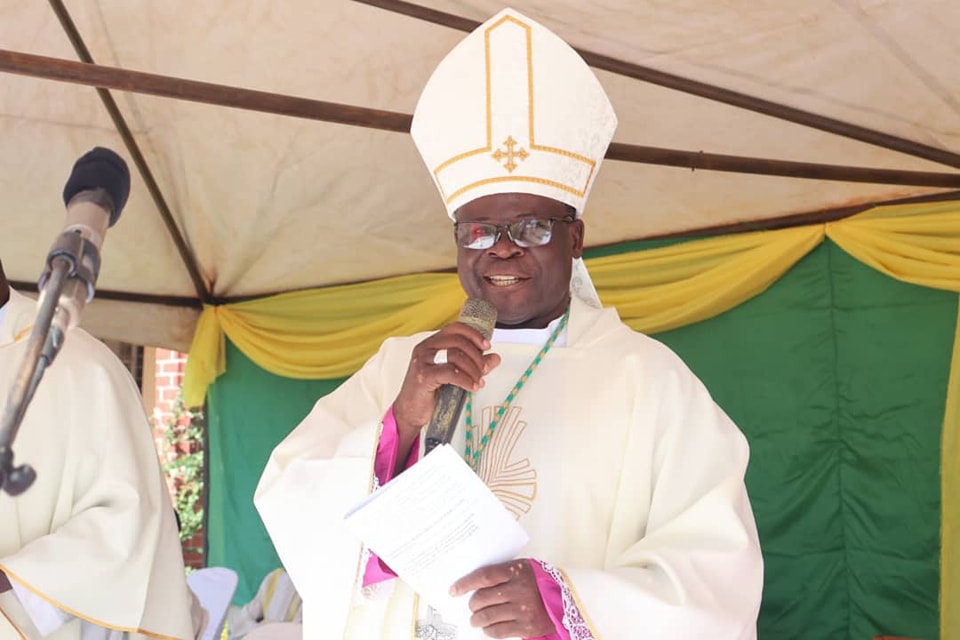The Vice Chairman Uganda Episcopal Conference Rt. Rev. Bishop Sanctus Lino Wanok has expressed concern to the kind of education the larger Ugandan Population gets that cannot support their sustenance.
Bishop Wanok says this is eminent in the way most of those taken to be educated or professionals within the communities including those of the religious execute the roles and responsibilities aimed at transforming society.
He was however gratified for the support received from well-wishers and collaborators of the Church who have funded projects to retool the religious in Africa which has enabled great works and achievements in the running of different institutions.
Bishop Wanok who is also the ordinary of Lira Catholic Diocese was leading the thanksgiving mass for the 25 years of The African Sisters Collaborative ASEC and graduation of 116 Religious Sisters under the Association of the Religious in Uganda ARU, who have been trained in Finance, Administration and Information Technology.
ASEC spearheaded the support for the Empowering Women Religious in Uganda with friends in Europe and Higher Education for sisters in Africa HESA, for them to match to the demands of the 21st century as they serve society in their religious life.
At the end of the mass there was a launch of the Educate the Sister Campaign for this project that has at least supported 800 religious sisters in Finance, administration and Information Technology and Centenary Bank contributed 10 million shillings towards this cause among other contributors.
In her speech the coordinator of ASEC Uganda Rev. Sr. Gerimina Kenema who sits at the Association of the Religious in Uganda ARU in Nsambya, since the coming of ASEC in Uganda over 800 sisters have been trained helping them to start up income generating activities and projects that benefit their institutions besides professional operations in finance, administration and Information Technology like web designing.
The Program was introduced by Dr. Bridge from America 25 years ago in 10 African Countries, Uganda, Kenya, South Sudan, Tanzaia, Ghana, Nigeria, Cameroon, Malawi, Zambia and Zimbabwe to educate and empower religious sisters to cause transformation within their communities and places of service, in leadership, health care providers, educationists and administrators.
Sisters undergo a three year training and each one before graduation has to train three sisters meaning for any one trainee more three are trained which helps to multiply the numbers and the aim is to see more women religious trained since they are more committed in service delivery.
End

